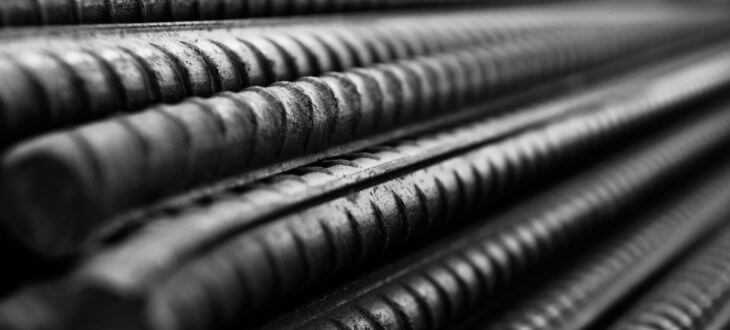Steel rebar has long been the backbone of reinforced concrete structures, providing essential support and strength. However, as industries strive for innovation and sustainability, the quest for alternatives to traditional steel rebar has gained momentum. This blog post will explore five alternatives to steel rebar.
The Need for Alternatives
While steel rebar is a robust and widely used material in construction, it comes with its challenges. One of the primary concerns is corrosion, which can compromise the structural integrity of concrete over time. Steel production contributes significantly to carbon emissions, making it less environmentally friendly. As a result, researchers and engineers have been actively seeking alternatives that address these issues and offer additional benefits such as lightweight, high strength, and non-conductive properties.
5 Alternatives to Steel Rebar
1. FRP Rebar: A Shining Star Among Alternatives
Fiber reinforced polymer (FRP) rebar stands out as a promising alternative to traditional steel rebar. Composed of high-strength fibers such as glass, carbon, or basalt embedded in a polymer matrix, FRP rebar offers a range of advantages. One key benefit is its corrosion resistance, making it an ideal choice for structures exposed to harsh environmental conditions or corrosive substances.
FRP rebar is also significantly lighter than steel, easing construction costs and reducing transportation costs. Its non-conductive properties make it an excellent option for structures where electrical conductivity is a concern. Furthermore, FRP rebar is transparent to magnetic fields, making it suitable for projects near sensitive equipment, such as medical facilities or data centers.
2. Glass Fiber Reinforced Polymer (GFRP) Rebar
One specific type of FRP rebar worth highlighting is the glass fiber reinforced polymer (GFRP) rebar. GFRP rebar consists of high-strength glass fibers embedded in a polymer matrix, typically epoxy resin. This combination results in a material that is corrosion-resistant, lightweight, and has excellent tensile strength.
GFRP rebar has been successfully used in various construction applications, including bridges, marine structures, and parking garages. Its resistance to corrosion makes it particularly suitable for projects in coastal areas where exposure to saltwater is a concern. Additionally, GFRP rebar is transparent to electromagnetic fields, making it an excellent choice for projects near power lines or electrical installations.
3. Carbon Fiber Reinforced Polymer (CFRP) Rebar
Carbon fiber reinforced polymer (CFRP) rebar is another notable alternative to traditional steel rebar. It comprises high-strength carbon fibers embedded in a polymer matrix and offers exceptional tensile strength and durability. CFRP rebar is also significantly lighter than steel, making it easier to handle during construction and reducing the overall weight of the structure.
CFRP rebar is commonly used in applications where high strength and low weight are crucial, such as in the construction of high-rise buildings and bridges. Its resistance to corrosion and ability to withstand harsh environmental conditions make it a durable choice for long-term projects. However, it’s essential to consider the higher cost of CFRP rebar compared to traditional steel rebar when evaluating its feasibility for a specific project.
4. Basalt Fiber Reinforced Polymer (BFRP) Rebar
Basalt fiber reinforced polymer (BFRP) rebar is an alternative that leverages the strength of basalt fibers embedded in a polymer matrix. Basalt is a natural volcanic rock that offers excellent tensile strength and is abundant in many regions, contributing to the material’s sustainability.
BFRP rebar is corrosion-resistant, lightweight, and has good thermal stability. It is a suitable alternative for projects where resistance to chemical corrosion is essential. Additionally, BFRP rebar is non-conductive and transparent to electromagnetic fields, making it a viable choice for structures with specific electrical requirements.
5. Aramid Fiber Reinforced Polymer (AFRP) Rebar
Aramid fiber reinforced polymer (AFRP) rebar is composed of aramid fibers, known for their high strength and excellent resistance to abrasion. The most common aramid fiber is Kevlar, widely recognized for its use in ballistic applications.
AFRP rebar is an ideal choice for projects where abrasion resistance and high tensile strength are crucial. It is relatively lightweight, making it suitable for applications where reduced weight is a priority. AFRP rebar is also non-corrosive, providing a durable solution for structures exposed to harsh environmental conditions.
In the ever-evolving field of construction materials, the search for alternatives to traditional steel rebar continues to yield innovative solutions. Fiber reinforced polymer (FRP) rebar, including variations such as glass fiber reinforced polymer (GFRP), carbon fiber reinforced polymer (CFRP), basalt fiber reinforced polymer (BFRP), and aramid fiber reinforced polymer (AFRP), presents a compelling case for the future of reinforced concrete structures.
The numerous benefits of these alternatives, such as corrosion resistance, lightweight properties, and non-conductivity, make them attractive options for a wide range of construction projects. While each alternative has unique characteristics and applications, the overarching goal is to provide durable, sustainable, and cost-effective solutions for the construction industry. As technology advances and research continues, these five alternatives to steel rebar will likely play an increasingly vital role in shaping the infrastructure of the future.
Visit Tampa Steel & Supply for Quality Metal and Metal Processing Services
Do you need help with metalworking and keeping your metal fresh? The experienced professionals at Tampa Steel & Supply are here to help. We provide the highest quality of services to our customers.
Request a Quote Online
Or Call Tampa Steel & Supply at (813) 241-2801

